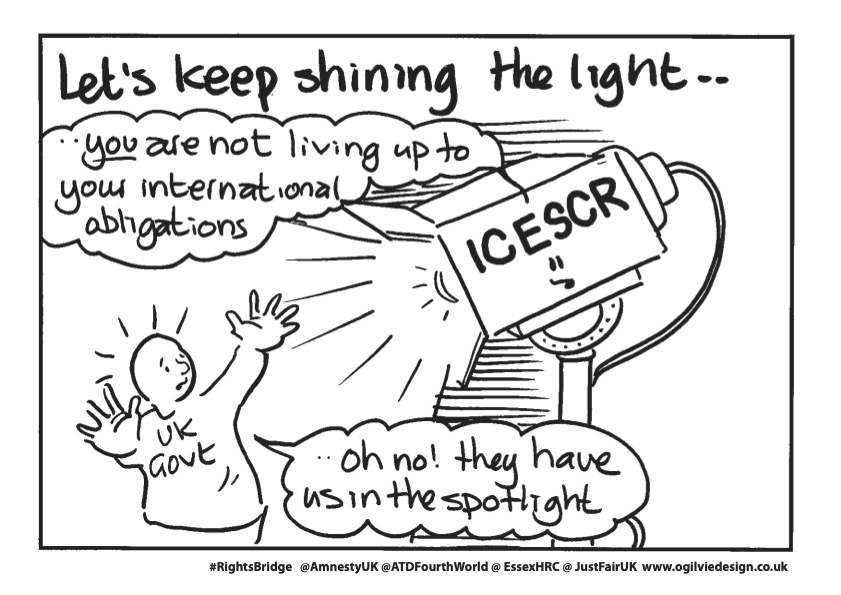About Us

GRIPP is made up of a number of individuals, projects and organisations from across the nations and regions of the UK who endeavour to take a human rights-based approach. We work together to develop and deliver joint and individual initiatives through new collaborations.
GRIPP has grown out of members working together since 2019 – read more about the history of GRIPP here.
Until December 2024, GRIPP is building a social movement of grassroots activists and allies to mobilise around the ICESCR 7th Review of the UK and form alliances and campaigns that hold the UK Government to account. Read more about this project here and the 7th ICESCR Review here.
Present members of GRIPP are Amnesty UK, ATD Fourth World UK, Intisaar, Just Fair, Poverty Truth Community, RAPAR, Thrive Teesside and University of Essex Human Rights Centre alongside individual activists Susanna Hunter-Darch and Rhetta Moran.
The Partnership has historically been funded by members of GRIPP, namely through ATD Fourth World, Amnesty UK and University of Essex Human Rights Centre. In 2022 and 2023 GRIPP received funding from Lankelly Chase. In 2023 Civic Power Fund awarded GRIPP one of the 18 Community Action Fund grants.



What is ICESCR?

Human rights are protected by law in the UK. While many people are familiar with civil and political rights such as Freedom of Speech, there is another set of rights that are equally important.
These are economic and social rights (ESR) which are the essential conditions needed to live a life of equality, dignity and freedom. They include the right to work and workers’ rights, social security, health, education, food, water, housing and an adequate standard of living. They are day-to-day rights that affect us from when we wake up in the morning to when (even where) we go to sleep at night.
The UK has recognised the importance of human rights by signing various international documents, including the International Covenant on Economic, Social and Cultural Rights (ICESCR). (ICESCR covers all those who live within the UK, regardless of status.) Among other things, this document says that governments must:

- Respect rights – not prevent people from enjoying them
- Protect rights – not allow others to prevent people from enjoying them
- Fulfil rights – take measures to move towards full realisation of economic, social and cultural rights.
The United Nations carry our regular reviews of all international laws, seeing how they are being upheld in member countries. The UK’s commitment to ICESCR is presently being reviewed (2022-24) and GRIPP plans to be submitting evidence to this process.
For more info about ESCR, see the “ICESCR In Plain” guide in English & Welsh in our Resources page. There is also a short blog about the review process here.
